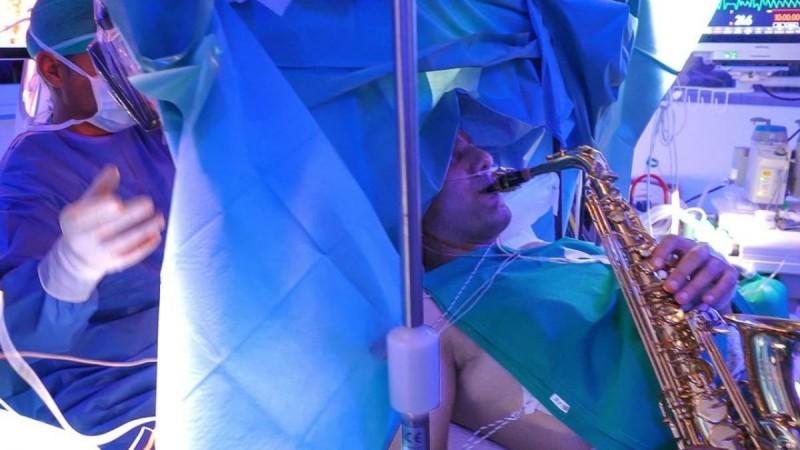Undergoing brain surgery can be a frightful prospect for many. Most people would choose to be in a deep state of unconsciousness while enduring it. However, a 35-year-old man recently underwent an exceptional procedure at an Italian hospital for the removal of a tumour in his brain: an "awake surgery" where he played the saxophone as surgeons operated on him.
The remarkable surgery was conducted at Paideia International Hospital in Rome, Italy. Led by Dr. Christian Brogna, a neurosurgeon and expert in neurosurgical oncology, a multidisciplinary team of medical professionals performed the surgery. The patient is said to be recovering well.
"The intervention was really complex and required a long preparation and very high technology. It was one of the first of this kind performed in Italy in a private facility. Paideia International Hospital is equipped with the technology I needed," said Dr. Brogna, in a statement.
A 'Musical' Intervention

An awake brain surgery, also known as intraoperative brain mapping and awake craniotomy, aids neurosurgeons in removing tumors that are deemed inoperable. The inoperability often arises due to the tumor's proximity to regions of the brain that regulate body movements, language, and vision. Awake brain surgeries are performed on tumours (a few types of gliomas) that have spread across the brain and do not present clear boundaries. Such tumours undergo significant shrinkage following this surgery.
Highlighting the significance of this medical procedure, Dr. Brogna remarked, "The goal of awake surgery is to remove the brain tumor or a vascular malformation such as cavernomas located in specific areas of the brain while preserving the patient's quality of life."
The 35-year-old music lover's case qualified for this type of surgical intervention. During the surgery, the patient was conscious and played the saxophone with his left hand. Lasting for more than nine hours, the surgery involved a team of over 10 international experts comprising anesthesiologists, engineers, neurosurgeons, neurophysiologists, and neuropsychologists, among others.
Technology Assures Precision

Several advanced technologies such as continuous neuromonitoring, intraoperative ultrasound, neuronavigation with tractography, and ultrasound aspirator, among others, were leveraged for the surgery. In addition, a special tracer was also used to facilitate the differentiation between cancer cells and the healthy tissues surrounding them.
Dr. Brogna explained that every individual's brain is unique and that it can be attributed to the organ's plasticity and architectural complexity. He added that awake surgery enables the mapping of neural networks associated with essential functions such as speech, movement, memory, and cognition, among others, with maximum precision.
"Every awake surgery not only allows to obtain the maximum result in terms of removal of the pathology, but it is a real discovery. Each time it offers us a window into the functioning of this fascinating, but still in many ways mysterious organ, which is the brain," stated Dr. Brogna.
.












